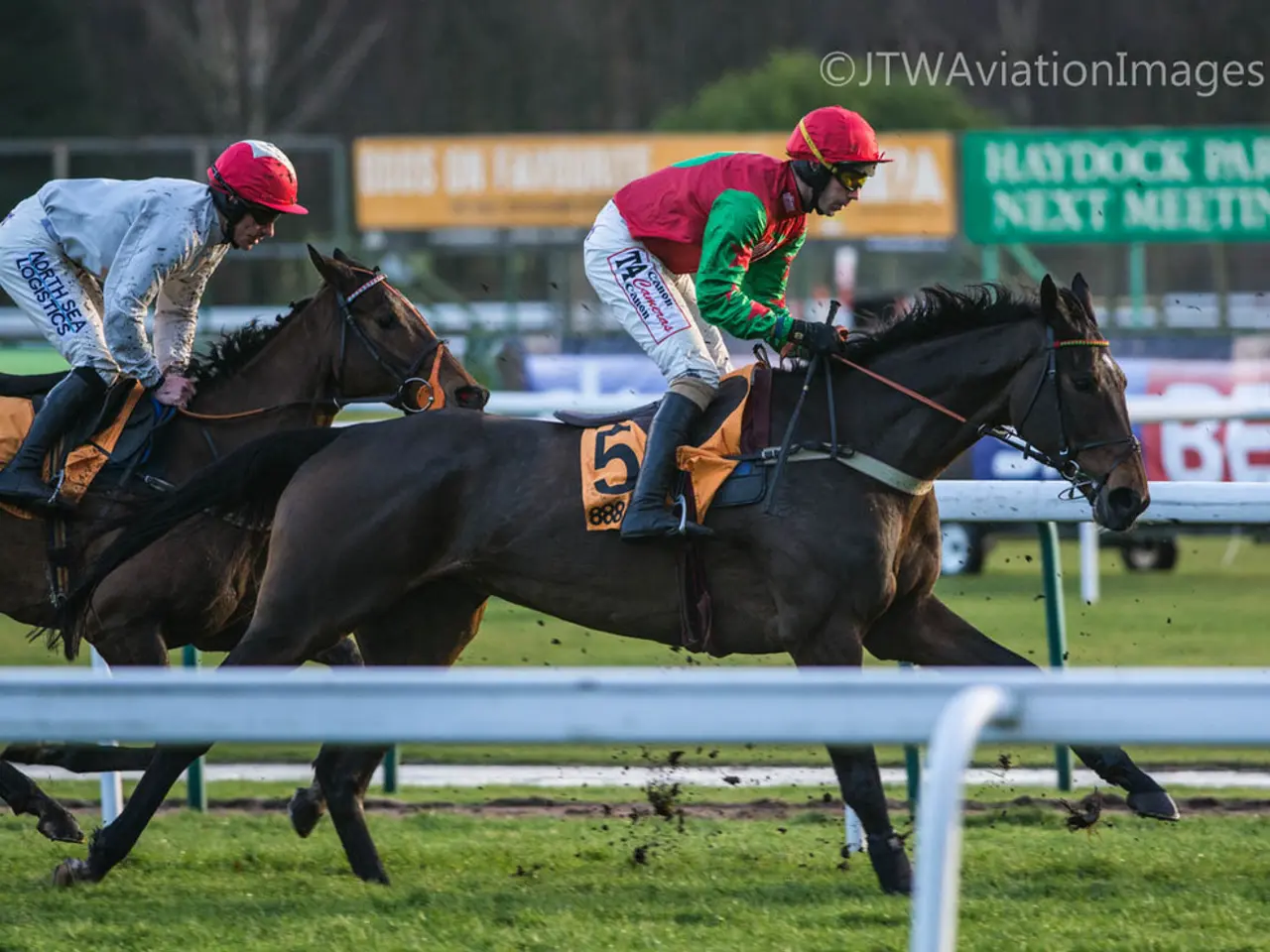Driver is departing or, more metaphorically, the horse-drawn carriage operator is leaving the scene.
In the picturesque Lüneburg Heath, carriage rides have become a popular attraction for visitors seeking a unique and authentic experience. The industry is thriving, but it comes with its own set of challenges and regulations.
Britta Albers, a one-woman operation based in the region, is almost fully booked in August for her specialized carriage rides. Her unique offerings, such as trips to the herd of Dülmen wild horses, have made her a sought-after choice for tourists. However, only about 10% of her bookings are spontaneous, with the majority being prior reservations.
Klaus Meyer from Schneverdingen, who trains aspiring coachmen from all over Germany, confirms the high proportion of prior reservations. Meyer, who operates the largest business in the region with 16 teams, has significantly reduced their offer due to low demand. His son, Steffen, indicates that the carriage business is the highest-grossing of the three major pillars of their company, but they earn more profit from their other businesses.
Meyer specializes in dental care for horses, which extends the life of a horse by an average of five years, according to him. Maintaining a team costs around 10,000 euros, as mentioned by Klaus Meyer. Despite the high costs, Britta Albers finds it unprofitable to expand her business due to the high maintenance costs and increased minimum wage for coachmen.
The nature park has compiled an overview of the carriage ride offer with maps and contact addresses to make it easier for visitors to plan their trips. Margret Hedder from Touristik Bispingen confirms the difficulty in finding employees for carriage businesses due to the need for appropriate coach training and the high and costly regulatory requirements.
One of the major achievements of a dialogue project funded by EU funds, led by Hilke Feddersen, the managing director of the nature park, is the agreements on the maintenance of paths. The project has improved the relationship between carriage operators, property owners, nature conservationists, communities, and tourism professionals in the Lüneburg Heath.
It has also been agreed that annual basic courses and further training for coachmen are mandatory. The farrier must come every six weeks, and the vet has become more expensive. Carriage rides in the Lüneburg Heath are predominantly booked by prior reservation, with approximately 40% of bookings being private advance bookings and about half coming from bus companies.
Despite the challenges, the carriage ride industry in the Lüneburg Heath continues to grow, offering visitors a memorable and authentic experience amidst the beautiful landscapes. A horse needs food 365 days a year, according to Hilke Feddersen, ensuring that the industry remains a significant contributor to the local economy.
Read also:
- Inequalities in colorectal cancer among racial groups: Insights and actions for support
- Liver Cancer Treatment Method: Insights into Function, Potential Sidelines, Efficiency
- Medical professionals at St. Remigius Hospital's rear facilities in Alexian
- Boron's Impact on Bone Health and its Connection with Bey (Title omitted)




